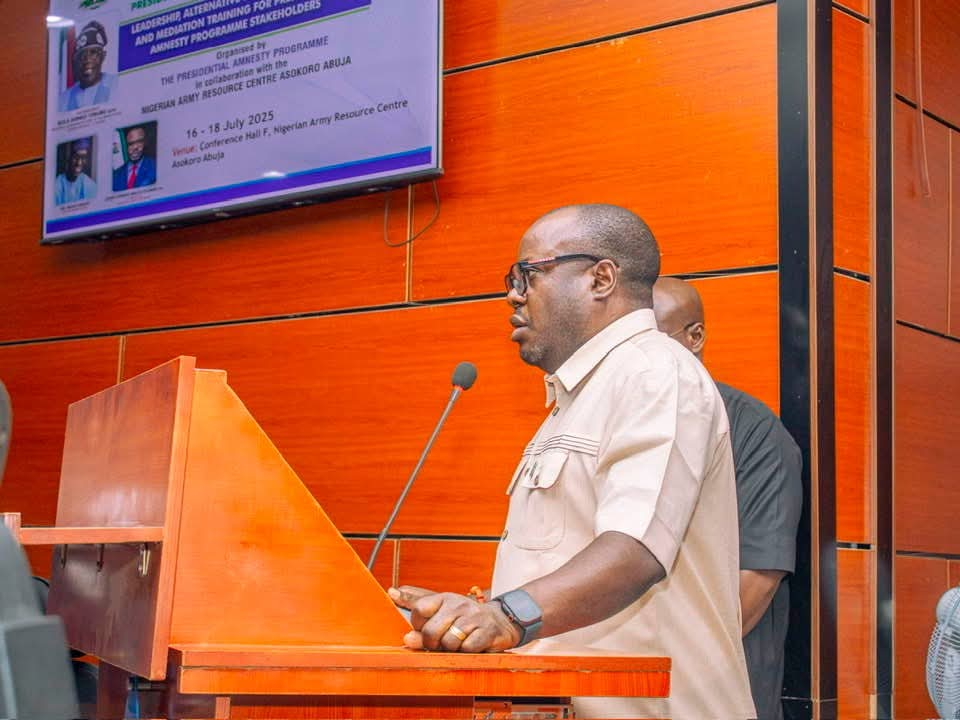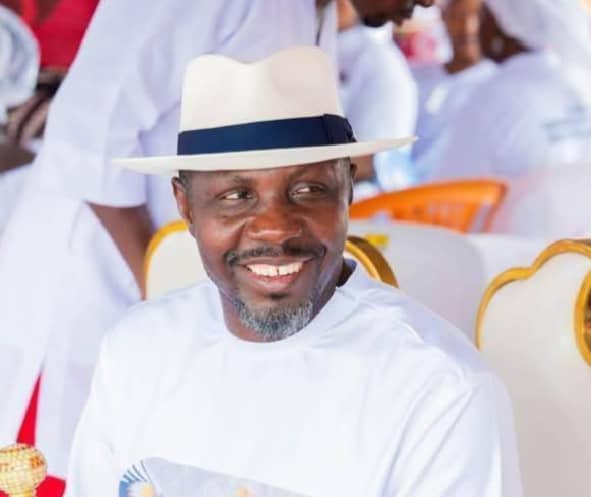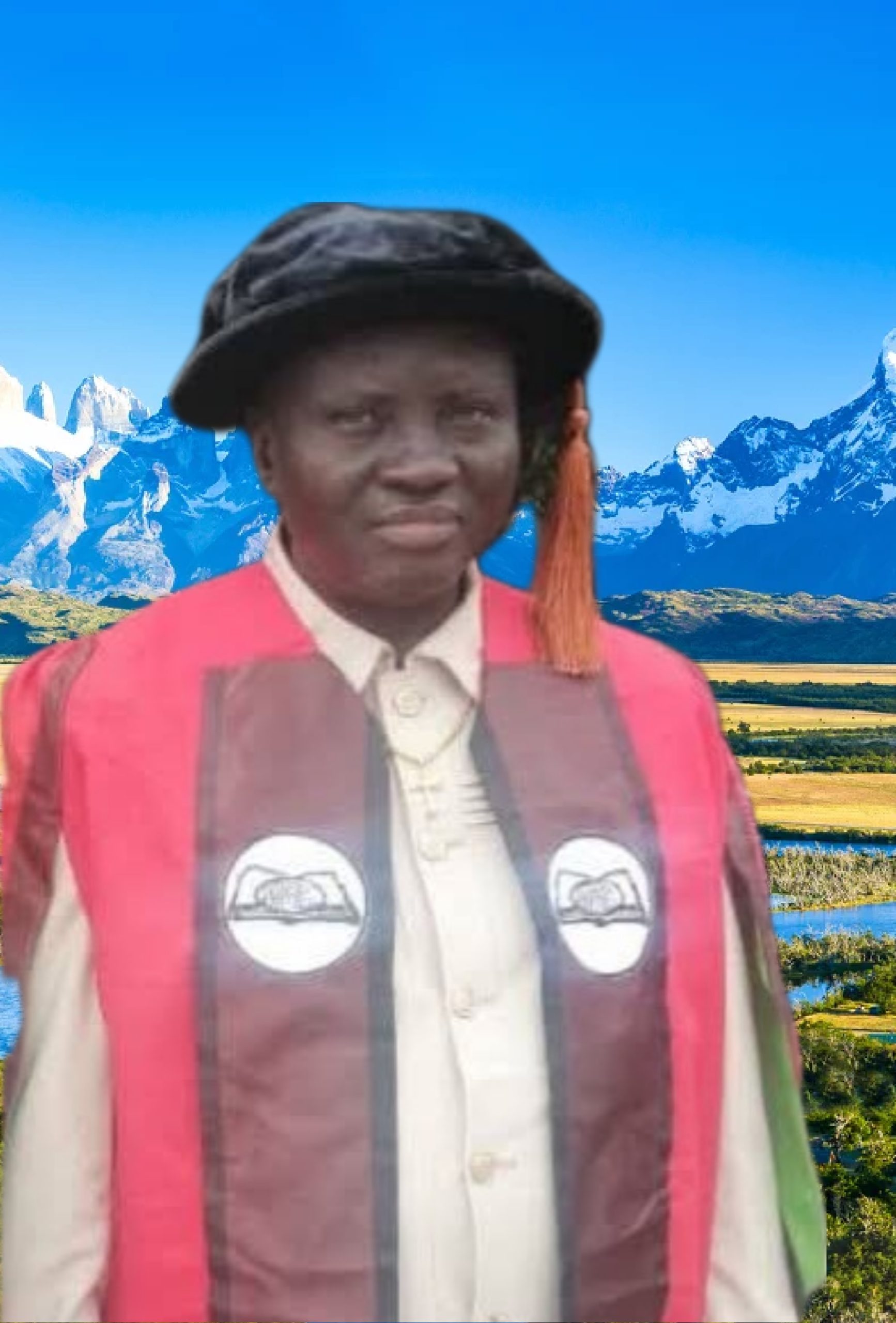Columns
The NNPC Limited and Dangote Refinery Limited (1), by Afe Babalola (SAN)

The NNPC Limited and Dangote Refinery Limited (1), by Afe Babalola (SAN)

The Dangote Petroleum Refinery was expected by many Nigerians to be the end to petroleum importation and petroleum product scarcity in Nigeria. Sadly, the actualisation of this expectation has been an up-hill and almost an insurmountable task. This is because of the position of the Nigerian National Petroleum Corporation Limited, NNPC Ltd., on the refining and sale of petroleum products from the Dangote Refinery Limited.
First, NNPC limited was reluctant to supply the crude oil needed to operate the Dangote Refinery. Dangote Refinery had to import crude oil from the United States of America and Brazil(an unprecedented event in the history of Nigeria), and was even in negotiation with some African countries for the importation of crude oil to Nigeria. By September, Dangote Refinery had imported 57 ship loads of crude oil into Nigeria. The NNPC limited only agreed to supply crude oil to Dangote Refinery after the intervention of the Federal Government.
Second, NNPC delayed in lifting Premium Motor Spirit, petrol or PMS, from Dangote Refinery, even after the product was ready for circulation. Dangote Refinery informed the press at the time that it was waiting for NNPC limited to lift the PMS for distribution in Nigeria.
Third, NNPC delayed in announcing the price of the PMS from Dangote Refinery. According to the representative of Dangote Refinery, only the NNPC limited can fix the price for the product since the NNPC controls price of petroleum products.
All these put NNPC limited at the centre of the petroleum production, pricing and distribution in Nigeria, thus establishing a monopoly. This is the hypothesis that has been created by the prevailing events between NNPC Ltd and Dangote Refinery over the past three months.
This article puts this hypothesis to the test in view of extant laws. Consequently, the provisions of the Petroleum Industry Act, 2021 will be considered in relation to the role that the NNPC has played so far in the ‘NNPC-Dangote rift’ as the press describes the relationship between the NNPC Ltd and Dangote Refinery.
To put the question into context, this article will examine whether the NNPC Ltd has the power to:
1. Supply crude oil to local refineries,
2. Determine the price of petroleum products, and
3. Act as the sole purchaser and distributor of petroleum products in Nigeria.
The Petroleum Industry Act, 2021.
The Petroleum Industry Act, 2021, PIA, is the act which regulates and governs the Nigerian petroleum industry. It prescribes the powers of the major actors in the petroleum sector in Nigeria.
The PIA empowers the Minister of Petroleum to incorporate the NNPC limited. The PIA further prescribes the powers of the NNPC Ltd. These are that the NNPC limited is to:
(a) carry out petroleum operations (this refers to various processes involved in the exploration, extraction, refining, transportation and marketing of petroleum products) on a commercial basis, comparable to private companies in Nigeria carrying out similar activities.
(b) Be the concessionaire of all Production Sharing Contracts, PSC, Profit Sharing Contracts and Risk Sharing Contracts as the National Oil Company on behalf of the Federation. A production sharing contract is the contract for the exploration, development and production of petroleum on the terms that the financial risk-bearing party shall recover costs and receive a share of the profit based on a share of production as established in the contract).
(c) Lift and sell royalty oil (fixed percentage of the crude oil conceded to Nigeria under the PSC) and tax oil (30% of the total production allocated as full payment of any and all royalties and taxes payable to the government) and on behalf of the Nigerian Upstream Regulatory Commission for an agreed commercial fee and in case of profit oil (the amount of oil explored above the expected extraction quota under a Production Sharing Agreement) and profit gas payable to the concessionaire.
(d) Carry out test marketing to ascertain the value of crude oil and report to the Nigerian Upstream Regulatory Commission.
(e) Be vested with the rights to natural gas under production sharing contracts entered into prior to and after the effective date of this Act
(f) Carry out the management of production sharing contract for a fee, based on the profit oil share or profit gas share in accordance with paragraph C
(g) Assume the working interest of the NNPC in all its joint operating agreements
(h) Engage in the business of renewables and other energy investments
(i) Promote the domestic use of natural gas through development and operation of large-scale gas utilisation industries.
(j) Maintain the role of NNPC under section 54 of this Act.
(k) Carry out task requested by the commission or authority on a fee basis and engage in activities that ensure national energy security in an efficient manner, in the overall interest of the Federation.
(l) Carry out such other tasks as may be determined by the Board of the NNPC Limited, and
(m) Make NNPC Limited supplier of last resort for security reasons.
(See generally section 64 of the PIA)
The Nigerian Midstream and Downstream Petroleum Regulatory Authority
In relation to the hypothesis being tested by this article, there is another agency of interest. This agency is the Nigerian Midstream and Downstream Petroleum Regulatory Authority created by section 29 of the PIA. This authority was empowered by section 31 of the PIA to:
a) Regulate midstream and downstream petroleum operations, including technical, operational and commercial activities.
b) promote a competitive market for midstream and downstream petroleum operations
c) promote the supply and distribution of natural gas and petroleum products in midstream and downstream petroleum operation and the security of natural gas supply for the domestic gas market
d) ensure compliance with applicable laws and regulations governing midstream and downstream petroleum operations
e) ensure crude oil supply for domestic refineries
f) promote, establish and develop a positive environment for international and domestic investment in midstream and downstream petroleum operations
g) develop and enforce a framework on tariff and pricing for natural gas and petroleum products.
See generally section 31(c), (d), (e), (f), (g), (j) and (l) of the PIA.
Section 32 of the PIA provides for the function of the Nigerian Midstream and Downstream Petroleum Regulatory Authority. This include:
a) providing pricing and tariff frameworks for natural gas in midstream and downstream gas operations and petroleum products based on the fair market value of the applicable petroleum products
b) regulating the bulk storage, distribution, marketing and transportation pipelines of petroleum products.
c) ensure security of supply, development of the markets and competition in the markets for natural gas and petroleum products. d) promote the interests of consumers with regards to midstream and downstream petroleum operations
e) promote the principles of economic development of infrastructure with regard to midstream and downstream petroleum operations.
f) promote competition and private sector participation in midstream and downstream petroleum operations. See generally section 32(e), (f), (h), (n), (s) and (u) of the PIA.
Private Sector involvement in the Midstream and Downstream Petroleum operations
In furtherance of the intendment of the PIA to welcome and sustain private sector participation in petroleum operations in Nigeria, privately owned refineries, like the Dangote Refinery, have the statutory liberty to obtain licenses or permits from the Minister of Petroleum on the recommendation of the Nigerian Midstream and Downstream Petroleum Regulation Authority – section 111(1) of the PIA. This is dependent on whether the applicant:
1. Meets technical standards required for petroleum operations based on good international petroleum industry policies.
2. Has its facilities in a location and on an area of land acceptable to the Authority.
3. Provides proof that the facility meets the health, safety and environmental standards as may be determined by the Authority. 4. Provides for the efficient and economic use of facilities and pipelines.
5. Shows that the facility does not involve excessive capital or operating expenditures.
6. Shows decommissioning and abandonment plans and funds to implement the plans presented
7. Provides for the elimination of routine natural gas flaring in its facility
8. Will not conflict with existing licenses
9. Has a detailed programme for the recruitment and training of Nigerians in all phases of petroleum operations it handles, and for the provision of scholarship schemes, internships, continuous professional development and other training requirements.
Columns
Chief Denis Otuaro, the Guiding Star of PAP

By: Professor Binebai
The Niger Delta has found a beacon of hope in Chief Dr. Dennis Otuaro, a leader of unimpeachable integrity, courage, and vision. As the helm of the Presidential Amnesty Programme (PAP), he has emerged as a champion of transformation, inspiring a region and a nation with his unwavering commitment to empowerment and progress.
In the realm of Nigerian leadership, there are those who leave an indelible mark on the sands of time, and Chief Dr. Dennis Otuaro is one such luminary. As the helm of the Presidential Amnesty Programme (PAP), he has etched a narrative of hope, redemption, and triumph, illuminating the path for the people of the Niger Delta. This tribute is a celebration of his extraordinary leadership, vision, and unwavering commitment to the cause of empowering the youths and transforming the region.
Chief Denis Otuaro’s stewardship of the Presidential Amnesty Programme (PAP) has indeed been a renaissance, a majestic sunrise after a long, dark night, as he infuses the initiative with the radiance of a new dawn.
Like the mythical Anansi, the wise and cunning spider of West African folklore, Otuaro’s leadership has woven an intricate web of hope and opportunity, capturing the challenges of the Niger Delta and transforming them into a rich mosaic of promise and progress. His vision, akin to that of the venerable Oracle of Delphi, has deciphered the complexities of post-conflict reconstruction, guiding the demobilised youths through the labyrinth of uncertainty, and into the bright light of empowerment and redemption.
Otuaro’s journey has been sustained by a resolute commitment to the cause, his leadership style a masterful blend of courage, wisdom, and compassion. His tenure has been marked by a symphony of progress, as the PAP, under his guidance, has orchestrated a harmonious balance of pacifism and pragmatism, transforming the region into a veritable Garden of Eden.
Like Athena, the Greek goddess of wisdom, Otuaro wields the power of transformation, his touch turning the arid landscape of despair into a lush oasis of hope and prosperity. His leadership has become a byword for sagacity, a testament to the transformative power of vision, courage, and compassion.
In the pantheon of Nigerian leaders, Otuaro’s name shall be etched alongside the greats, his legacy a shining testament to the indomitable human spirit, as he continues to weave a new narrative of hope, redemption, and triumph for the people of the Niger Delta.
The Niger Delta has found a leader of repute, a leader of courage, a leader of transformation, a leader of goodwill in the PAP. Let egocentric economic buccaneers and demonic agencies stop their campaign of calumny against this leader of glory.
To those who seek to undermine his efforts, we say: let envy and malice be silenced! Let the progress of the Niger Delta be the benchmark for greatness! Let Otuaro’s leadership be the inspiration for a new generation of leaders!
Columns
A Legendary Legacy: The Enduring Odyssey of High Chief (Dr.) Government Oweizide Ekpemupolo

By: Professor Ben Binebai
In the realm of Nigerian leadership, one name resonates with mythical significance – High Chief (Dr.) Government Oweizide Ekpemupolo, affectionately known as Tompolo. Born on 12 April 1971, in Warri, Delta State, Tompolo has etched his name in the annals of history, leaving an indelible mark on the Niger Delta region. As a former militant commander of the Movement for the Emancipation of the Niger Delta (MEND) and chief priest of the Egbesu deity, he has navigated the treacherous waters of war and peace, leveraging his remarkable journey to bring succour and development to his people.
Tompolo’s metamorphosis from a militant leader to a peace advocate is a testament to his unwavering commitment to the progress of the Niger Delta. His decision to embrace the Amnesty Programme in 2009 marked a turning point, as he laid down arms and picked up the mantle of transformation. Today, he is revered as a hero, celebrated for taming the turbulent waters of the Creek boys and settling major political crises in the region. By putting the Ijaw image on the Nigerian map, Tompolo has redefined the narrative, showcasing the rich cultural heritage and resilience of the Ijaw people to the world.
A nationalist and statesman emerging from the boiling pot of agitation in the Niger Delta, Tompolo has consistently demonstrated his commitment to the development and progress of his people. His agency operates in close collaboration with the government, working tirelessly to implement projects and initiatives that benefit the Niger Delta region. His leadership style is characterised by quiet strength, strategic thinking, and an unwavering commitment to the progress of his people. His efforts have earned him recognition and accolades from various quarters, solidifying his position as a dependable pillar of the Ijaw nation.
As the last voice of the Ijaw nation, Tompolo’s legacy continues to inspire hope and progress for generations to come. With institutions established for national economic stability and prosperity, his impact will be felt for years to come. Tompolo’s story serves as a beacon of hope and resilience, inspiring his people to strive for greatness.
God bless this emergent leader of the Ijaw nation.
Columns
YOUNA: WARRI CRIES FOR PEACE AND JUJUSTICE

By: Ben Binebai
In the Niger Delta region of Nigeria, a city cries out for peace, justice, and unity. Warri, a land of rich cultural heritage and economic significance, has been plagued by recurring crises, sparked by provocative actions and claims of ownership by the Itsekiri group. The cry of Warri is a call to action, a reminder that our diversity is a strength, not a weakness, and that our common humanity is worth fighting for.
The Ijaw, Urhobo, and Itsekiri communities have coexisted in Warri for centuries, sharing a rich cultural heritage and a deep connection to the land. Occasionally uniting but deeply disunited because power and hegemony have often overshadowed their shared humanity, the people of Warri yearn for a future where their differences are celebrated, and their commonalities are the foundation of their unity. Warri’s significance extends beyond its current boundaries, as it has been a hub of economic and cultural activity for centuries. Before 1952, Warri was a thriving commercial centre, with the Ijaw, Urhobo, and Itsekiri communities contributing to its growth and development.
The city’s strategic location and access to the Niger Delta’s vast resources made it an attractive location for trade and commerce. Understanding Warri’s rich history and cultural heritage is essential to finding a lasting solution to the crisis.
It is time for truth to prevail to offer a lasting solution to the Warri crisis. The canoe of godfatherism should be withdrawn for the rule of law and for peace and progress to triumph.
The lie of exclusive ownership of Warri resists termination due to several factors, including:
Outdated court judgments: The Itsekiri establishment continues to rely on outdated court judgments, such as the 1925 judgment, to support their claim of ownership, despite subsequent judgments repudiating its validity.
Lack of political will: Successive governments have failed to address the problem and take the right and just decision, allowing the crisis to persist.
Absolutist claims: The Itsekiri claim is absolutist, while the Urhobo and Ijaw claims are limited, recognising ownership of portions of Warri by other communities.
Historical narratives can be deeply ingrained*: People’s understanding of their history and identity can be shaped by long-standing narratives, making it hard to change their perspectives.
Emotions and biases can override facts: When emotions and biases are strongly tied to a particular narrative, people may resist changing their views, even in the face of contradictory evidence.
Power dynamics can influence narrative control: Those in positions of power may use their influence to shape and maintain certain narratives, making it harder to correct lies and misconceptions.
Moreover, leadership plays a crucial role in shaping the future of Warri. As the saying goes, “When leaders refuse to embrace sacrifice, society dies.” Leaders who prioritise the greater good, make tough decisions, and invest in the future can help build a more harmonious and prosperous society. It is time for the leaders of Warri to put the needs of their people first and work towards a brighter future.
The cry of Warri is a call to action, a reminder that our diversity is a strength, not a weakness. Let us work towards a brighter, more harmonious future, where the beauty of our differences is celebrated, and our common humanity is cherished. May the cry of Warri be heard, and may we rise to the challenge of building a better tomorrow for all its people.
